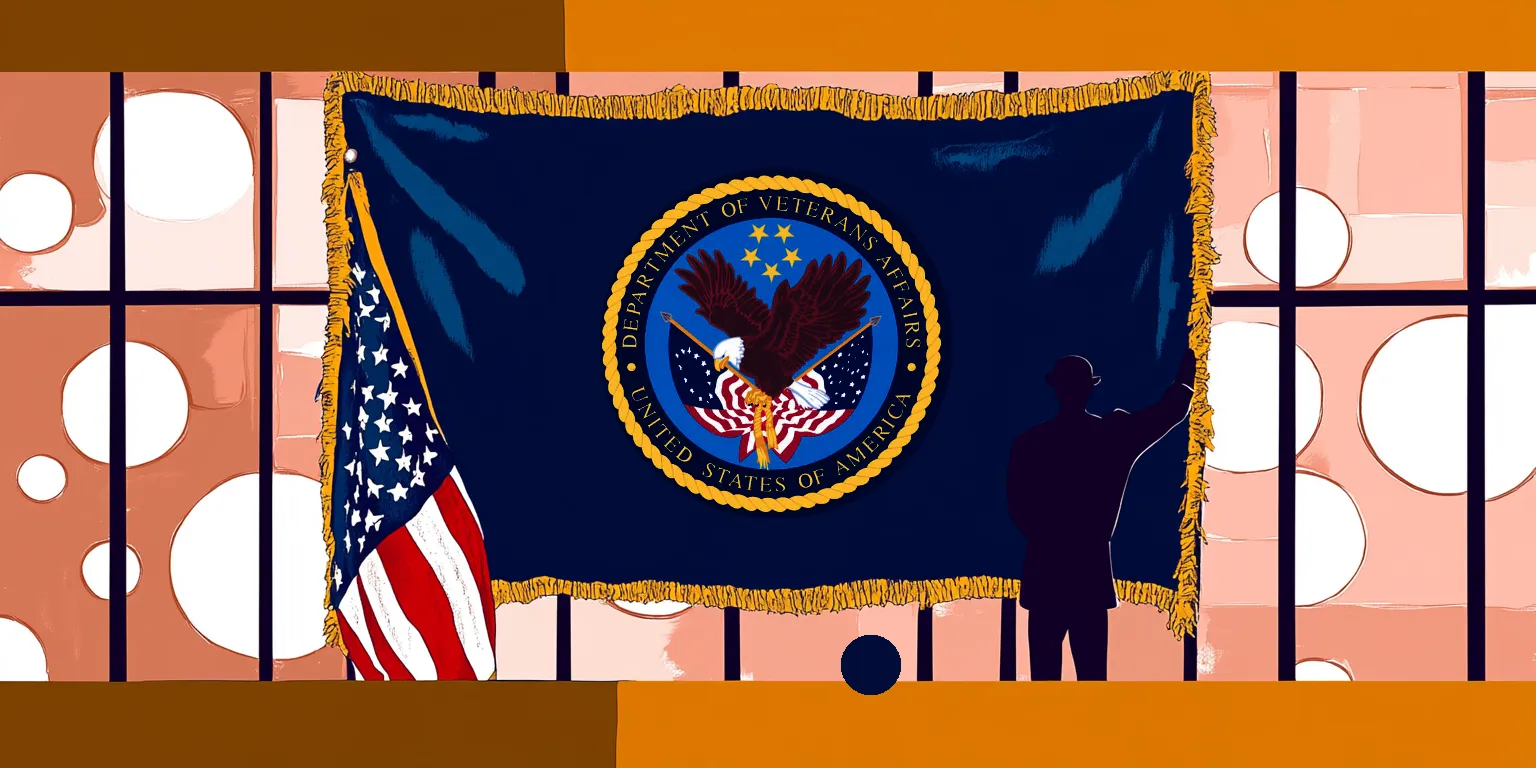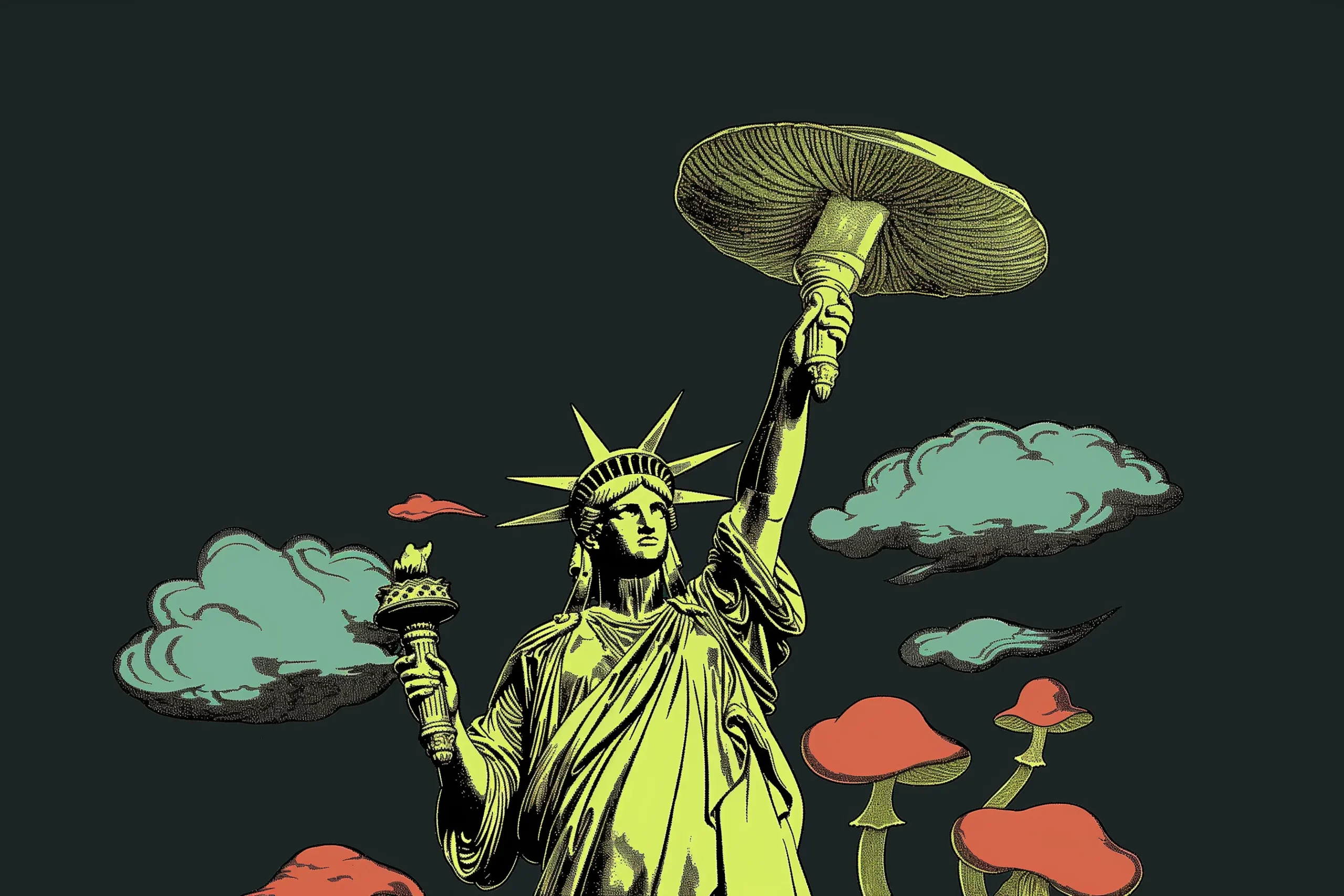In the week’s Psychedelic news roundup, we cover ongoing efforts by veterans and advocacy groups to influence the FDA’s upcoming decision on Lykos Therapeutics‘ MDMA-assisted therapy application. Other news includes an overwhelming public response to the DEA regarding rescheduling cannabis, and two new psychedelic studies.
Navigating Regulatory Challenges: The Battle for MDMA’s Approval in PTSD Treatment

MedpageToday details continuing support from veterans and advocacy groups for MDMA-assisted therapy for post-traumatic stress disorder (PTSD), supported by the Multidisciplinary Association for Psychedelic Studies (MAPS). This movement seemed poised for success when VA Under-Secretary for Health Shereef Elnahal expressed readiness to implement MDMA therapy, pending FDA approval. However, the FDA advisory committee’s subsequent rejection due to concerns over data integrity and potential risks cast doubt on the drug’s regulatory future. However, it should be noted that the independent review board’s decision is not binding.
Key Developments:
Veterans who have participated in trials attest to MDMA’s transformative effects on traumatic memories, advocating for its therapeutic benefits. Meanwhile, the scientific community remains divided, with some urging larger, more impartial studies to validate MDMA’s efficacy and safety comprehensively.
Keep Up with Uncensored Psychedelic Trends
Join our newsletter at Psychedelics Uncensored.
We respect and protect your privacy. By subscribing your info will be subject to our privacy policy . Unsubscribe easily at any time
The discussion extends beyond the U.S., with veterans traveling abroad to places like Mexico and Peru for psychedelic therapies unavailable at home. Organizations like the Heroic Hearts Project advocate for access and recognition of psychedelic treatments, emphasizing their potential to significantly improve veterans’ mental health. The community remains hopeful that continued advocacy and evolving research will eventually lead to broader acceptance and integration of these therapies into mainstream mental health treatment.(1)

Public Opinion Overwhelms DEA with Calls for Full Cannabis Legalization
As reported by the Guardian, the U.S. Drug Enforcement Administration (DEA) concluded a two-month public comment period regarding the proposed rescheduling of cannabis, revealing a significant public push not just for rescheduling, but for full legalization. The agency received nearly 43,000 responses, the highest number ever recorded over a proposed rule change, indicating a strong public interest in the reform of cannabis laws.
Key Points:
The vast majority of feedback received highlighted dissatisfaction with the proposed changes being too conservative. Advocates and ordinary citizens alike expressed a desire to see cannabis removed from the Controlled Substances Act entirely, aligning its legal status more closely with alcohol and tobacco. This perspective was echoed by various organizations and echoed in personal testimonials regarding the benefits of cannabis, ranging from medical relief to personal well-being.
Despite President Biden’s campaign promises to decriminalize marijuana, the current proposal for rescheduling under the DEA would not prevent arrests or resolve the overarching issues of federal criminalization. Critics argue that rescheduling might prolong the adverse effects on communities, particularly those of color, which have been disproportionately affected by stringent drug laws.
The sentiment shared by many during the comment period suggests a growing frustration with the slow pace of federal reform in contrast to state-level advancements where cannabis has been legalized or decriminalized. The public’s feedback could potentially influence the DEA’s final decision, though the agency could also extend the deliberation process through hearings or face legal challenges.
Keep Up with Psychedelic Trends
Get uncensored psychedelic news, events, and updates. Join Psychedelics Uncensored!
We respect and protect your privacy. By subscribing your info will be subject to our privacy policy . Unsubscribe easily at any time
As the debate continues, it is clear that public opinion on cannabis is shifting towards a more liberal stance, reflecting broader societal changes and an increasing acknowledgment of the drug’s safety and efficacy compared to other legal substances. Whether this will translate into significant federal policy change remains to be seen, but the overwhelming response to the DEA’s call for comments is a strong indicator of where many Americans stand on the issue.(2)
Innovative LSD Microdosing Study in New Zealand Focuses on Cancer Patients and Cultural Inclusivity

A new study at the University of Auckland is exploring the effects of LSD microdosing on patients with late-stage cancer, with a particular focus on including a significant number of Māori participants. This research aims to assess the potential benefits of psychedelic-assisted therapies in a culturally respectful manner, enhancing the standard care for these patients.
The study, led by Dr. Lisa Reynolds and her team, is distinctive in its approach, combining LSD microdosing with meaning-centered psychotherapy. They hypothesize that while all participants may benefit from the psychotherapy, those receiving LSD might experience additional improvements in their quality of life. This trial is particularly novel as it integrates a tikanga-based approach, ensuring that the research is culturally appropriate for Māori participants.
Key Points:
The inclusion of Māori perspectives and practices in the study design is expected to enhance the relevance and effectiveness of the treatments for Māori patients and potentially provide a model for other health interventions in New Zealand. The study also aims to set the groundwork for future changes in the regulation of psychedelic substances in New Zealand, taking a proactive approach to potential health policy changes.
As the trial progresses, it will provide valuable insights into the safety and optimal dosing of LSD microdosing, with the ultimate goal of expanding to larger randomized controlled trials. This could significantly impact the way late-stage cancer is treated, offering new, effective options for those who currently have limited treatment success.(3)
DemeRx Launches Noribogaine Study

A new clinical trial announced and spearheaded by DemeRx NB, Inc. is investigating the efficacy of DMX-1001, a new treatment for Alcohol Use Disorder (AUD), marking a significant advancement in addiction medicine. This Phase I trial, enrolling healthy volunteers, aims to evaluate the safety, tolerability, and how the body processes DMX-1001—a derivative of ibogaine known as noribogaine but without the psychedelic effects associated with its parent compound.
Key Takeaways
By targeting the complex brain circuits involved in addiction, DMX-1001 represents a novel therapeutic approach in psychiatry, potentially offering a more targeted and effective treatment for those battling severe alcohol addiction.
Sources

1. Press, A. (2024, July 27). Veterans Lobby for Psychedelic Therapy, but Will It Influence MDMA’s Approval? Medpagetoday.com; Medpage Today. https://www.medpagetoday.com/psychiatry/generalpsychiatry/111259
2. Green, H. H. (2024, July 27). Nearly 43,000 people commented on the DEA reclassifying cannabis. What did they say? The Guardian. https://www.theguardian.com/society/article/2024/jul/27/dea-cannabis-classification
3. LSD microdosing trial seeks 50 percent Maori – The University of Auckland. (n.d.). Www.auckland.ac.nz. Retrieved July 31, 2024, from https://www.auckland.ac.nz/en/news/2024/07/30/lsd-microdosing-trial-seeks-50-percent-maori.html
4. Articles & Podcast – DemeRx. (n.d.). Retrieved July 31, 2024, from https://www.demerx.com/articles/
This material is not intended as a replacement or substitute for any legal or medical advice. Always consult a medical professional about your health needs. Psychedelics are widely illegal in the United States, and readers should always be informed about local, state, and federal regulations regarding psychedelics or other drugs.

 David Connell
David Connell





 Ross Dillon
Ross Dillon 
